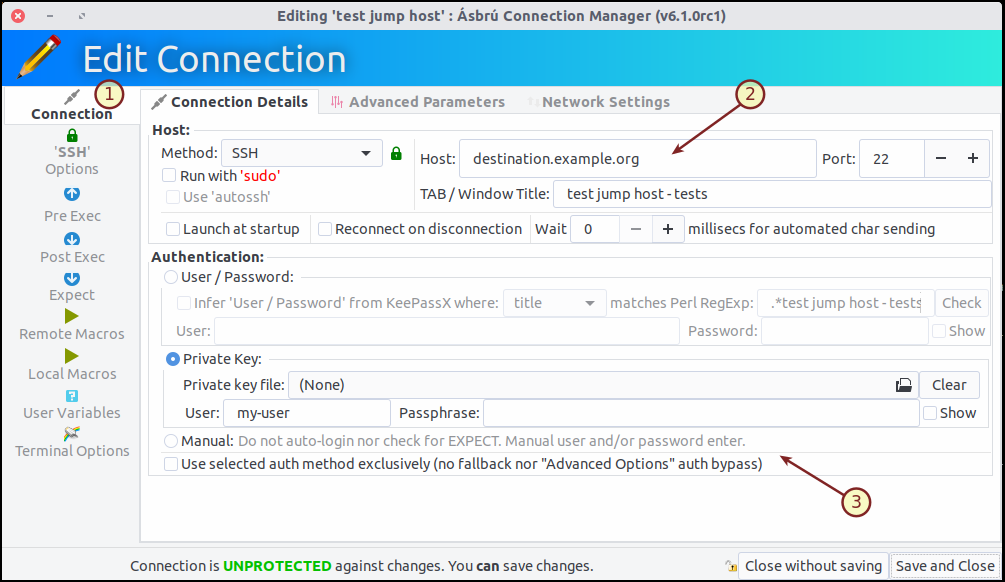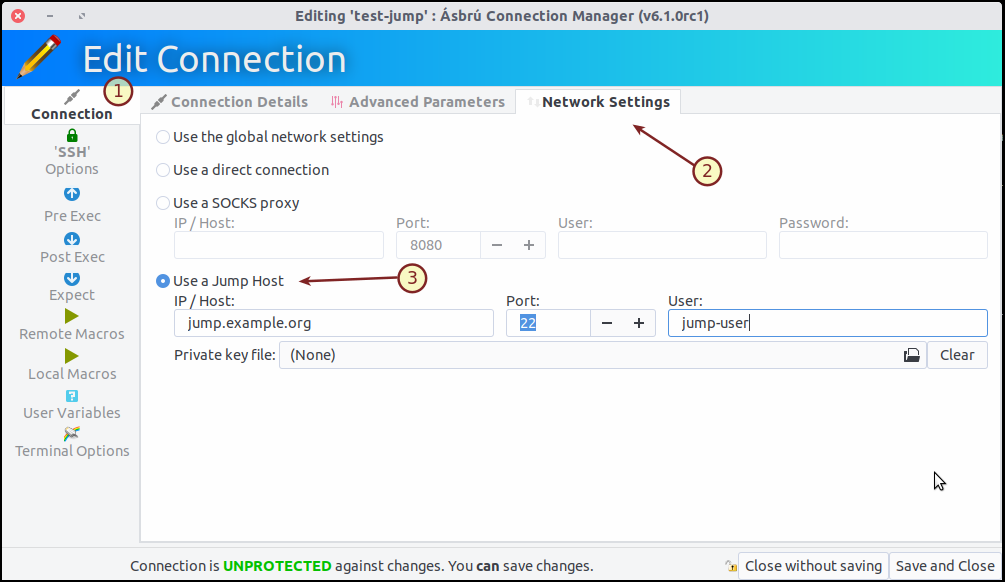This article has been written by Gaëtan Frenoy
Using a Jump Host¶
What is a Jump Host and why should I use it ?¶
By exposing all options and powerful features of OpenSSH, Ásbrú-CM is able to easily manage a large range of complex network configuration schemes using SSH tunnels[1].
With its new "Jump Host" feature, Ásbrú-CM makes it even easier for the most common case where you cannot reach your final destination because your client is not allowed to go trough a firewall or proxy.
This is typically the case when that destination is located into a demilitarized zone (DMZ) of your network and can only be accessed by a few number of gateway hosts, also named "jump hosts".
In that case, you have to first connect to that jump host and, from there, connect to your final destination:
This can perfectly be achieved by creating two SSH connections. For the first one, you will create a local port forwarding to your final destination ; and for the second one, you'll target your local port instead of the final destination.
As of version 6.1, this becomes ever easier and you can set this up in a single connection by using the new "Jump host" option.
How do I use a Jump Host with Ásbrú Connection Manager ?¶
In the Connection Details of your connection, specify the final destination host and how you want to connect to it:

In the Network Settings panel, specify the host name and how you want to connect to it:

In the above screenshots, we are assuming you are connecting to the final destination destination.example.org on port 22 using the default private key and user my-user through a jump host named jump.example.org on which we connect on port 22 and using the default private and user jump-user.
What does Ásbrú Connection Manager behind the scene ?¶
According to the final destination and your version of OpenSSH, Ásbrú-CM will either:
- Use the ProxyJump option of OpenSSH
- Use netcat and the ProxyCommand of OpenSSH
- Create a SSH tunnel and use port forwarding
All of these techniques are described in detail in this cookbook for OpenSSH proxies and jump hosts.
Limitations¶
- Jump Host can only be used for the following connection types : SSH, RDP, VNC.
- Multiple jump hosts are not supported.
More references¶
[1] There are plenty of articles on that topics, here is a short selection:


